Explore
Castilla-La Mancha
Become an Auxiliar de Conversación in the Community of Castilla-La Mancha
Teach English in Castilla-La Mancha and Live the ConversaSpain Experience!
Experience where it all started. Castilla-La Mancha is where so much of Spain’s story began, shaping its vibrant culture. Explore the heart of Spain, between Madrid and the Costa Blanca beaches, where you’ll find ancient castles, vast vineyards, and the landscapes that inspired Don Quixote’s adventures, from the renowned writer Miguel de Cervantes. Explore cities like Toledo, Cuenca, Albacete, Guadalajara, and Ciudad Real, each offering its own unique culture and plenty of things to do.
Immerse yourself in the full Spanish lifestyle by connecting with the locals, getting to know their traditions, and tasting the region’s culinary delights such as the famed Manchego cheese and local wines.
Get lost in the cultural heritage, but most importantly, feel right at home in this beautiful region.
Community of Castilla-La Mancha
-
14 teaching hours per week
-
4 teaching days a week
-
€800 monthly stipend (tax-free)
-
Health coverage included
-
Primary and secondary schools
-
Placements in the capital cities, towns, and villages (pueblos)
-
8 months (Oct-May) or 5 months (Jan-May)
-
Paid school holidays (Christmas, Easter, and local festivities), except for the summer period
-
In-person Orientation Day where you will meet other Auxiliares de Conversación

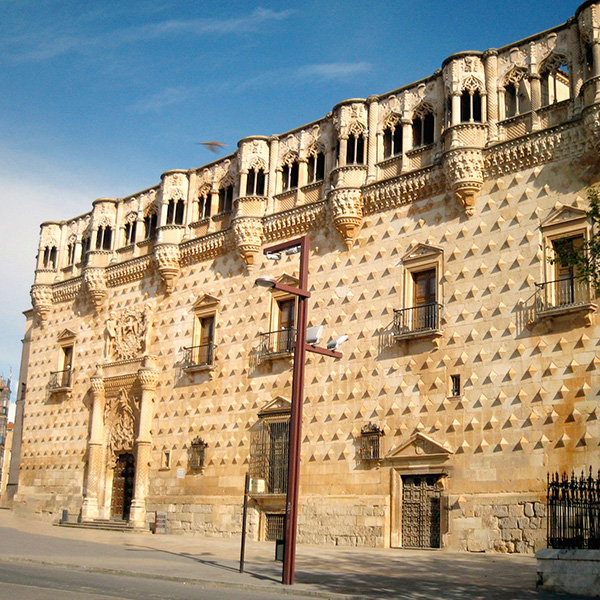



Requirements to Teach English in Castilla-La Mancha with ConversaSpain
- Be a native-level English speaker from Australia, Canada, Fiji, Malta, New Zealand, the Republic of Ireland, Solomon Islands, Tonga, the United Kingdom, the United States of America, and Vanuatu, or hold a C2 English certificate (CEFR) or equivalent if you are from Austria, Belgium, Brazil, Bulgaria, Denmark, Finland, France, Germany, Hungary, Italy, India, Luxembourg, Norway, the Netherlands, the Philippines, Poland, Portugal, Singapore, or Sweden.
- Hold a university/college degree (e.g.: Bachelor’s, Master’s, NQF7, Associate’s, or equivalent) in any subject, or be enrolled, at least, in the second year of your university degree.
- Be aged up to 59 by the 1st of January 2026.
- Have a clean background check.
- Speaking Spanish is NOT a requirement.
Choose Your ConversaSpain Experience!
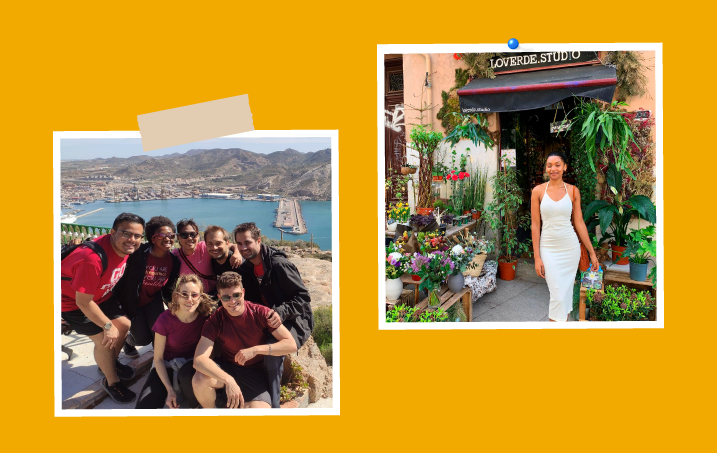
Become an Auxiliar de Conversación in Castilla-La Mancha
And enjoy the ConversaSpain Experience!
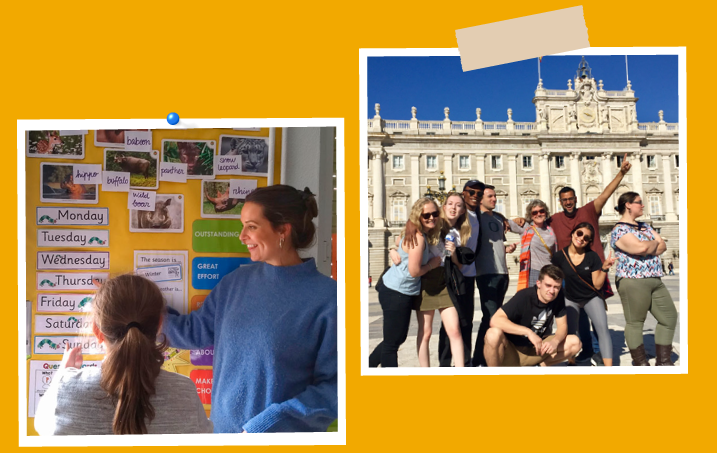
Practical Information for life in Castilla La-Mancha
Cost of living
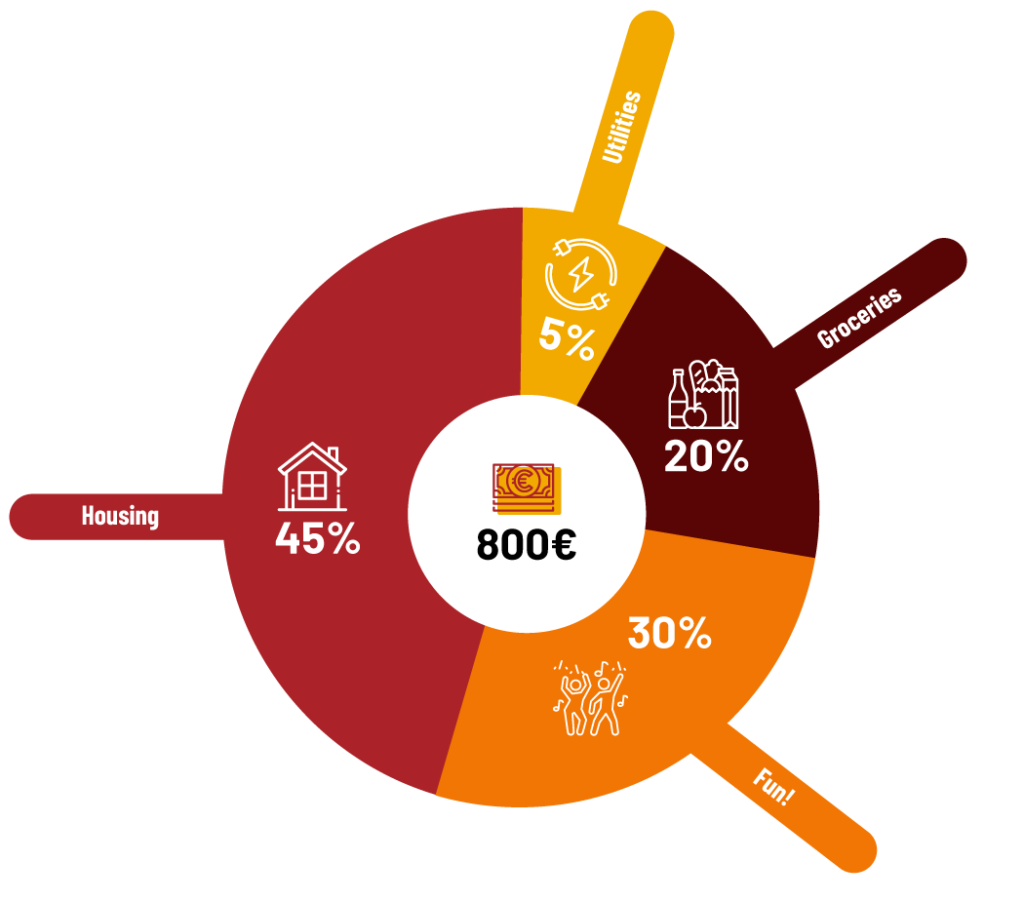

Housing:
Housing will be your highest expense, even though rent in Spain is 45% lower than in the US.

Utilities:
Utilities include water, light, gas... Some apartments might include these charges in your rent.

Groceries:
Spain's cheapest supermarkets include Mercadona, Alcampo, Lidl, Dia, and Aldi.

Fun!:
Of course, it's important to have somewhere to live and something to eat, but let’s not forget having fun!
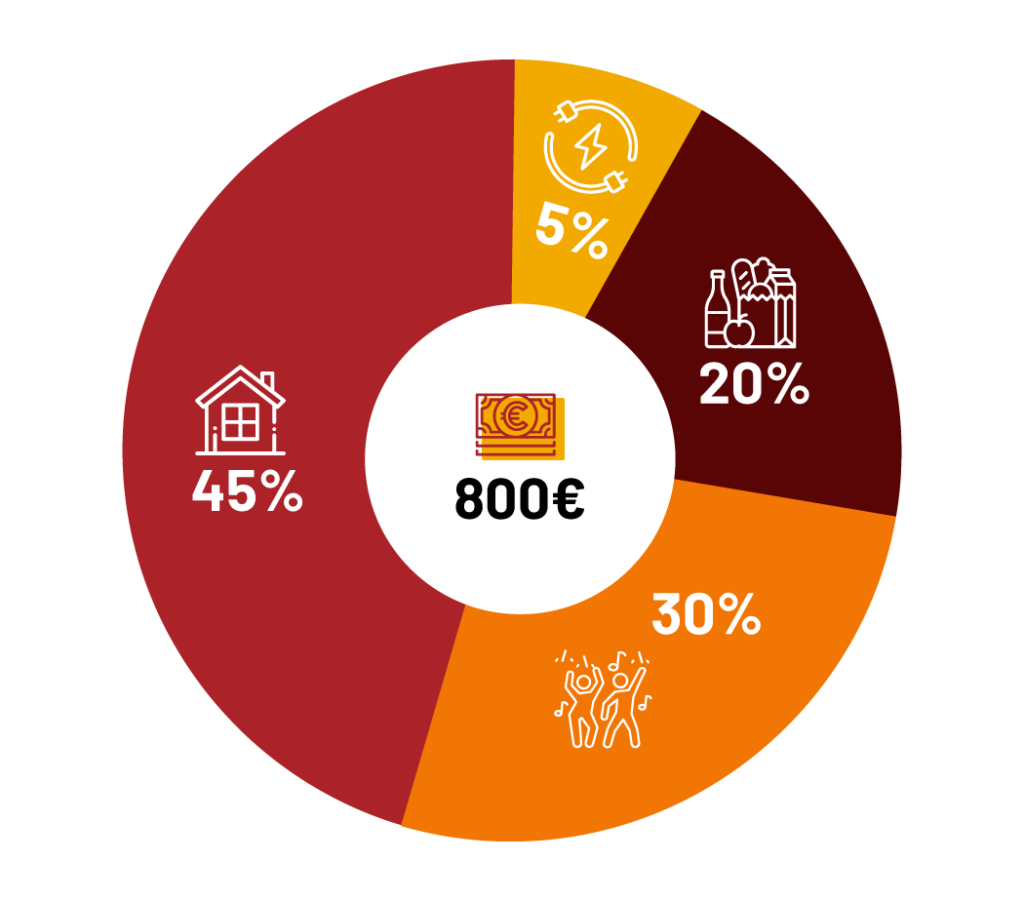

Housing:
Housing will be your highest expense, even though rent in Spain is 45% lower than in the US.

Utilities:
Utilities include water, light, gas... Some apartments might include these charges in your rent.

Groceries:
Spain's cheapest supermarkets include Mercadona, Alcampo, Lidl, Dia, and Aldi.

Fun!:
Of course, it's important to have somewhere to live and something to eat, but let’s not forget having fun!
Finding Acommodation in Castilla La-Mancha
Finding housing can be challenging, but everyone ends up figuring it out! Here are some trustworthy websites you could use.
Rights as a tenant
Check out our blog “How to Find Housing in Spain” for helpful resources
Click on the sections below!
Where Can You Live the ConversaSpain Experience in Castilla La-Mancha?
All placements are managed by the Regional Education Authority and there are diverse locations within the Region of Castilla-La Mancha where you can be placed:
There are five main cities: one capital city per province (and each of these capital cities shares the name with its province!): Albacete, Ciudad Real, Cuenca, Guadalajara, and Toledo. In addition, this region is sprinkled with charming towns and villages where life is relaxed, people are sociable and easy-going, and outdoor activities are part of everyday life.









